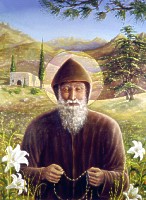Young Ratzinger Resisted Hitler Youth Membership
Saturday, July 29, 2006 12:00:00 AM GMT
German historical records have confirmed that the young Joseph Ratzinger-- the future Pope Benedict XVI -- was enrolled in the Hitler Youth movement against his will.
The German historian Volker Laube, researching the archives of Sankt Michael seminary in Bavaria, has concluded that the young Ratzinger resisted the pressure to enter the Hitler Youth movement. Laube was commissioned as an independent investigator by the Munich archdiocese, in response to public questions about the Pope's youthful affiliation.
The results of Laube's inquiry, based primarily on the records of the little Sankt Michael seminary in Traunstein, Bavaria, will soon be available in Germany in book form. The German daily Suddeutsche Zeitung has released a story based on an early draft.
The seminary records show that in April 1938, financial support was withdrawn from students who were not members of Hitler Youth. The archdiocese then requested, and received, tuition payments from the Ratzinger family.
In 1939, membership in Hitler Youth became obligatory for all young Germans. Joseph Ratzinger was then 12 years old, but when he reached his 14th birthday he was formally incorporated into the movement. The records show that he was marked as Zwangs-Hitlerjunge--- a young member enrolled under the universal policy-- rather than Stamm-Hitlerjunge, a volunteer.
The Bavarian seminary archives thus confirm what Church officials had indicated before and after the election of Benedict XVI as Roman Pontiff: that he had been enrolled in the Hitler Youth involuntarily. In August 1943, he was pushed a step further, and enlisted as an auxiliary to work in an anti-aircraft unit. Eventually the future Pope would desert his military unit and make his way home, where he was taken into custody by advancing Allied troops as World War II neared its end.
The independent investigation, and the opening of the Munich seminary archives, required the Pope's personal consent. Ordinarily, archives are kept secret until 30 years after the death of the individuals concerned.
The investigation sheds new light on the comments that Pope Benedict made during his May 28 visit to Auschwitz, where he remarked that many German people "had been exploited and deceived by a group of criminals" in the Nazi regime. Suddeutsche Zeitung comments that the Pope's words might represent "the memory of what the young Joseph Ratzinger lived through" during his youthful experience in Bavaria.
Not surprisingly, the Sankt Michael seminary archives also reveal that Joseph Ratzinger was an outstanding student.
Sunday, July 30, 2006
Silencing the critics
From Catholic Exchange:
Subscribe to:
Post Comments (Atom)






No comments:
Post a Comment